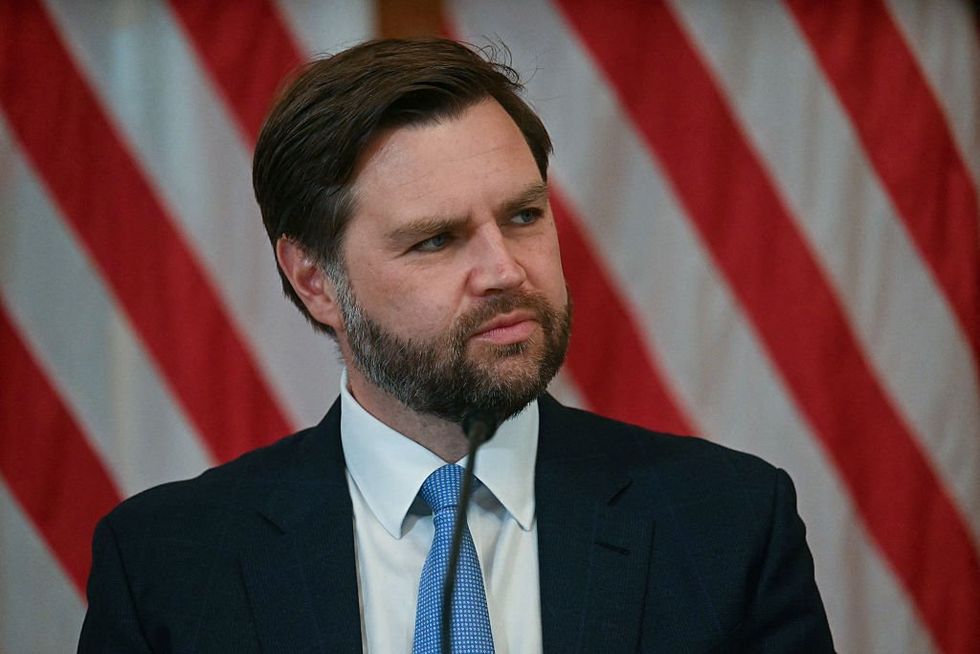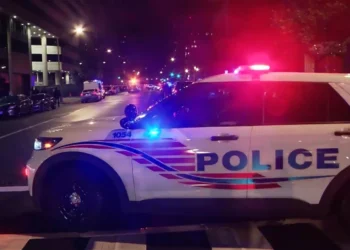
The decades-long dispute between India and Pakistan over the Kashmir region has resulted in numerous bloody skirmishes and three full-fledged wars — in 1965, 1971, and 1999. In the wake of a horrific terrorist attack in the southern part of Indian-administered Kashmir last month, fighting has resumed and threatens now to embroil the two nuclear powers in another major war.
When pressed on Thursday to comment about the Trump administration’s concern “about the potential for nuclear war between India and Pakistan,” Vice President JD Vance told Fox News’ Martha MacCallum that while concerned and keen on de-escalation, the U.S. is “not going to get involved in the middle of war that’s fundamentally none of our business and has nothing to do with America’s ability to control it.”
“Look, we’re concerned about any time nuclear powers collide and have a major conflict,” said Vance. “What we’ve said, what Secretary Rubio has said, and certainly [what] the president has said is we want this thing to de-escalate as quickly as possible.”
Tensions once again came to a head between India and Pakistan on April 22 when terrorists massacred 26 people, mainly Indian tourists, near Pahalgam, a town in the southern part of Indian-administered Kashmir.
‘It’s a shame.’
Indian officials believe that the group claiming responsibility for the massacre, the Resistance Front, is actually a proxy for the Pakistan-based jihadist terrorist organization Lashkar-e-Taiba, reported the New York Times.
President Donald Trump stated in the immediate aftermath of the terrorist attack, “The United States stands strong with India against Terrorism. We pray for the souls of those lost, and for the recovery of the injured.”
While India did not publicly blame the Pakistani government massacre, New Delhi nevertheless responded with missile strikes on alleged terrorist training sites in Pakistan while also reportedly arresting thousands of people in Kashmir.
Pakistani Prime Minister Shehbaz Sharif claimed that India’s May 6 (local time) strikes amounted to a “heinous act of aggression [that] will not go unpunished.”
President Donald Trump said Tuesday in response to the news of India’s military operation against Pakistan, “It’s a shame,” adding, “I just hope it ends very quickly.”
‘What we can do is try to encourage these folks to de-escalate a little bit.’
Secretary of State Marco Rubio noted later on May 6 that he was monitoring the situation closely and echoed Trump’s hope that “this hopefully ends quickly.”
In recent days, India and Pakistan have reportedly traded artillery fire and drone strikes. Sharif claimed Wednesday that the Pakistani military had shot down five Indian jets.
“We can’t control these countries,” Vance, who was in India at the time of the terrorist attacks, told MacCallum. “India has its gripes with Pakistan. Pakistan has responded to India. What we can do is try to encourage these folks to de-escalate a little bit.”
“Our hope and our expectation is that this is not going to spiral into a broader regional war or, God forbid, a nuclear conflict,” continued the vice president. “We’re worried about these things, but I think the job of diplomacy — but also the job of cooler heads in India and Pakistan — is to make sure this doesn’t become a nuclear war.”
According to the Federation of American Scientists, Pakistan and India have 170 and 180 nuclear warheads, respectively.
Like Blaze News? Bypass the censors, sign up for our newsletters, and get stories like this direct to your inbox. Sign up here!

















